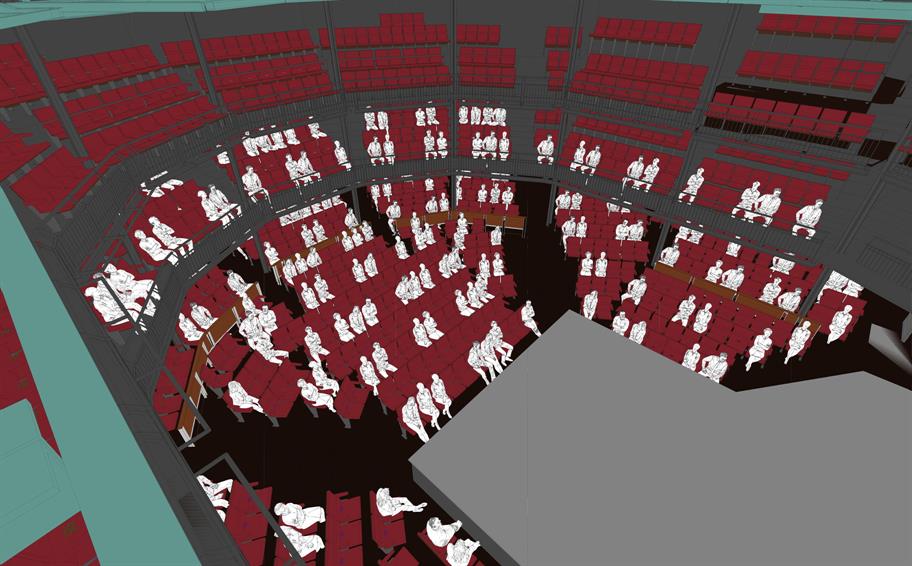The Royal Shakespeare Company has announced socially-distanced seating for its upcoming productions of Richard III, All’s Well That Ends Well and A Christmas Carol running in the Royal Shakespeare Theatre in Stratford-upon-Avon in 2022. The news arrives ahead of the opening of the Company’s new production of Richard III, directed by Gregory Doran and featuring Arthur Hughes in the title role; the first disabled actor to take up the role in the RSC’s history.
Catherine Mallyon, RSC Executive Director said: “For some audience members, particularly those with underlying health conditions and those who may consider themselves vulnerable, we understand that attending a theatre performance may feel difficult.
“To address these concerns, we will provide socially-distanced seating at selected performances in the Royal Shakespeare Theatre throughout 2022. We hope that this offer – alongside our regular programme of Assisted performances, - including our hugely popular Relaxed Performances of Matilda The Musical at the Cambridge Theatre - will mean that those who might otherwise feel unable to attend live theatre have the opportunity to do so confidently.”
The venue will operate at a reduced capacity, with a proportion of auditorium seats held off for social-distancing throughout. Audiences who opt for socially-distanced seats will be positioned with an empty row in front of and behind them and with one empty seat between parties.
Audiences sat in the socially-distanced seating will be asked to wear a face covering, unless exempt. Adjoining bars and toilets will be socially-distanced and reserved exclusively for those who have requested a socially-distanced seat or seats.
To ensure socially-distanced access, these facilities will only open when the auditorium opens. The decision follows the success of the RSC’s previous socially-distanced stagings of The Comedy of Errors and The Magician’s Elephant in 2021 and Much Ado About Nothing in the Spring of 2022, which were developed in line with the Seven Inclusive Principles produced by #WeShallNotBeRemoved and its partners.
The principles have shaped the cultural sector's pandemic recovery through the lens of disability and relevant equality legislation.
Andrew Miller, RSC Trustee, Cultural Consultant and Broadcaster, added: "Covid remains a risk to many disabled and clinically vulnerable people and presents an ongoing barrier to engagement with theatre and other life enhancing events.
“The RSC's previous socially-distanced performances provided me with an important bridge from total shielding to becoming comfortable in a full auditorium once again. Whilst many cultural organisations have returned to business-as-usual without mitigations, I warmly welcome the RSC's commitment to providing much needed access for people to enjoy live theatre in an actively managed environment, and in so doing offering leadership to the wider sector."
Also taking place this month and following the sold-out success of six previous relaxed performances, the RSC’s next Relaxed Performance of Matilda The Musical will take place at The Cambridge Theatre, London on Sunday 19 June at 3pm. The relaxed performance provides a comfortable environment for everyone, with elements of the production adapted to reduce anxiety and stress, including adjustments to lighting and sound levels to soften their impact.
The ambience of the auditorium and theatre ‘rules’ will be relaxed, with everyone free to make noise and move around without restriction. Designated ‘chill-out’ areas outside the auditorium will provide soft seating and activities for those who need to take a break. The production will also be captioned and audio-described with an accompanying touch tour.
All theatre staff, crew and company members also receive specialist training to anticipate a wider range of different audience needs.











